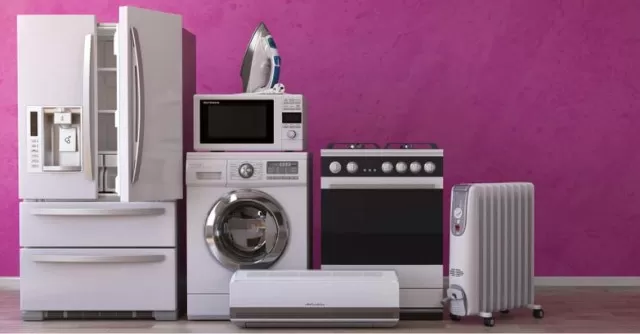Every household contains items that have a limited shelf life, and it’s essential to recognize when it’s time to part ways with them to maintain an organized and clutter-free home.
By disposing of or recycling these items past their prime, you can create more space for the things you genuinely need and use.
Don’t let expired or worn-out objects take up valuable storage areas, and instead, follow our guide to know precisely when and how to bid farewell to each item.
By following these guidelines, you can efficiently manage your household items, avoid unnecessary clutter, and create a more organized and enjoyable living environment.
Household Items You Should Throw Away At Once

Here are some household items that you should consider replacing regularly and how to safely dispose of them:
Vitamins: Replace vitamins after two years or when they reach the expiration date to ensure their effectiveness.
To dispose of old vitamins, drop them off at a drug take-back location recommended by the FDA.
Sunscreen: Replace sunscreen after each summer or if it has expired, as the protective chemicals degrade over time.
Contact your local waste management office to determine the proper way to dispose of sunscreen.
Opened Nail Polish: Dispose of opened nail polish after a year, as it can become inconsistent in color and application.
Contact your local hazardous waste facility for drop-off or let the polish dry out before throwing it away.
Gift Cards: Digitize gift card information using mobile wallet apps to avoid clutter and keep track of balances.
Many retailers accept used gift cards for recycling, so check with them before tossing them in the bin.
Opened Wine: Recork or seal opened wine bottles and refrigerate them to maintain freshness for up to two days.
If there’s still some leftover after a few days, pour it down the drain and recycle the glass bottle.
Opened Paint: Dispose of opened paint after two to five years, as its components may separate and make it difficult to mix.
Latex paint can be thrown in the trash after drying it out completely.
CDs: Digitize your favorite songs from CDs and donate the discs to a local thrift store or an organization like GreenDisk, as CDs and their cases are not suitable for recycling.
Appliance Manuals: Most appliance manuals are available online as PDFs, so you can recycle paper manuals in your household bin.
Bleach: Replace bleach every three to five months, as the chlorine dissipates over time, affecting its effectiveness.
Dilute bleach with running water and dispose of it down the drain.
By following these replacement guidelines and safe disposal methods, you can keep your household items up-to-date and contribute to a cleaner and more organized living space.
How frequently should you consider replacing your household dinnerware and drinkware?

The timeless dishes you carefully selected when you moved into your first real apartment, along with that cherished Georgetown mug you acquired on your college debut, have the potential to accompany you throughout a lifetime.
Opting for durable, high-quality dishes with chip-resistant properties ensures they will stand the test of time and remain part of your kitchen essentials indefinitely.
Extending the discussion, it’s important to recognize that the longevity of your dishes heavily depends on their material and craftsmanship.
Investing in sturdy materials like porcelain, bone china, or tempered glass can significantly extend their lifespan. These materials offer excellent resistance to chipping, breakage, and wear, making them durable enough to withstand daily use for many years.

To keep your dishes in top condition, there are a few practical tips to follow:
Handle with Care: Treat your dishes gently to minimize the risk of chipping or cracking.
Avoid stacking them too tightly, and refrain from using metal utensils that could scratch the surfaces.
Hand Washes with Care: While most modern dishwashers are designed to be gentle on dinnerware, washing by hand can further prolong their life.
Use a soft sponge or cloth and mild Dish Soap to prevent any damage during cleaning.
Store Safely: Store your dishes in a secure and organized manner.
Utilize plate protectors or soft fabric liners when stacking them to prevent surface contact and reduce the risk of chipping.
Regular Inspections: Periodically check your dishes for any signs of wear, chips, or cracks.
If you notice any damage, consider retiring the affected pieces and replacing them with new ones.
Although well-made dishes can last a lifetime, it’s natural for our tastes and lifestyles to evolve.
As such, you might find yourself wanting to update your dinnerware collection to suit your changing preferences or to complement a new interior design theme. When it comes to replacing your dishes, it’s ultimately a personal decision based on factors such as functionality, aesthetics, and sentimental value.
In conclusion, with proper care and investment in quality dinnerware, your dishes can indeed become cherished companions that serve you well for years to come.
Whether you decide to keep them forever or choose to refresh your collection, they will continue to hold cherished memories of meals shared and special moments enjoyed around the table.
*The information is for reference only.